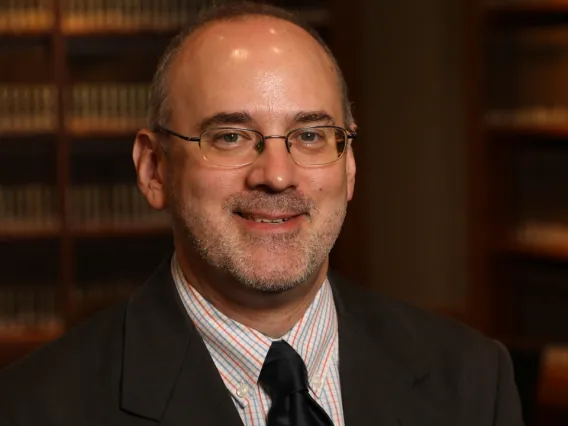About the Initiative
The goal of the Future of Law Libraries is to foster discussions, provide guidance, and support action that empowers law libraries and legal information professionals to meet emerging challenges and plan for an impactful and empowered future of our profession.
The founding project of the initiative was the Artificial Intelligence and the Future of Law Libraries Regional Roundtables. From 2023-2024, the initiative convened six regional roundtables on Artificial Intelligence & the Future of Law Libraries with experts from academic, court, firm, and government law libraries, as well as allied professions, using scenario-building methodology to examine how AI is reshaping legal education, work, and systems and what law libraries must do to lead that change. Each roundtable produced a report on their findings. For more information about the roundtables and their reports, visit the regional roundtable page.
Building the Future of Law Libraries
We are excited to share with you Building the Future of Law Libraries: Artificial Intelligence, Opportunities, and Advancement, the summative white paper reporting on the AI & Future of Law Libraries Regional Roundtables. This white paper highlights emergent themes from roundtable participant discussions nationally. Additionally, it provides a roadmap for the next phase of the AI & Future of Law Libraries project, ensuring law libraries meet this critical tipping point and empowering legal information professionals to impactfully contribute to national conversations on legal informatics futures. This white paper distills convergent themes and proposes collaborative directions. It explores three recommendations that sprang from the roundtables: 1) create a centralized AI organization, 2) develop tiered training for legal information professionals, and 3) establish a shared knowledge hub.
If we are successful in this next stage, we will have coordinated advocacy and standards, a workforce with more advanced skills, and an open, authoritative, dynamic, centralized repository. Success depends on us stepping forward to make these recommendations manifest. As such, the initiative invites colleagues to get involved by volunteering for one of four working groups:
- Steering Committee – Provide strategic oversight.
- Consortium Charter Group – Develop governance and organizational models.
- Training Development Group – Define competencies and create pilot training.
- Knowledge Hub Group – Establish hosting, policies, and contributor guidelines
Steering Committee
The steering committee will provide strategic oversight for this next stage of the Future of Law Libraries Initiative by facilitating the work of subgroups and preparing the initiative for subsequent phases. We are grateful to the full team who helped us organize and host the regional roundtables and welcome colleagues to join us in this next step.

Cas Laskowski is a veteran, librarian, gamer, teacher, Latina, techie, comic book nerd, and empiricist in perpetual beta. She regularly engages in national AI efforts, including co-founding the Future of Law Libraries Initiative. She was a ’24-‘25 fellow of the UA Research Leadership Institute, a founding fellow of in the University of Tennessee Library’s 2021 IDEA Institute on Artificial Intelligence, and the only librarian of any type to be selected for the 2022 Summer Conference on Applied Data Science, at North Carolina State University, where she leveraged machine learning summarization methods to design a prototype system that would aid intelligence analysts in efficiently identifying relevant audio files. She co-led the UA Making AI Generative for Higher Education project team, a two-year cross-institution partnership with Ithaka S+R, and serves on the Arizona Steering Committee on Artificial Intelligence and the Courts.

Taryn Marks serves as the Associate Director of Research & Instructional Services. Prior to joining Stanford’s law library, she was the Faculty Services Librarian at the University of Florida’s Levin College of Law. Her research and teaching interests include international and business law. Previously, Taryn was the inaugural Judith M. Wright fellow at the University of Chicago, a clerk on the North Carolina Supreme Court, and a special prosecutor in Decatur, GA. She earned her M.L.I.S. from the University of Washington, and both her J.D. and LL.M. in International Law from Duke University School of Law.

Richard L. Buckingham
Professor Buckingham is the Director of the Law Library and Information Resources, Associate Professor of Legal Research at the Suffolk University Law School. He joined the Moakley Law Library as a legal reference librarian in 2002. Before becoming a librarian, he worked in housing and residence life at several institutions, including Boston University and Emerson College. While obtaining his degree from Simmons College he worked part-time at the Harvard Law School Library.

Kristina (Kris) Niedringhaus
Kristina L. Niedringhaus is Associate Dean and Director of the Law Library at the University of South Carolina Joseph F. Rice School of Law. Her teaching portfolio includes courses in research methods, advanced legal research, and law practice technology, and her scholarship spans legal research pedagogy, technology competency, ethics issues related to legal research and technology, and law librarianship. In 2023 the International Legal Technology Association honored Kris as an Influential Woman in Legal Tech.
She currently serves as Treasurer of the American Association of Law Libraries and on the Board of Directors of CALI, including two terms as President.
Prior to the Joseph F. Rice School of Law, she served as Associate Dean for Library, Information Resources, Legal Technology, and Innovation and Faculty Director of the Legal Analytics & Innovation Initiative at Georgia State University College of Law.

